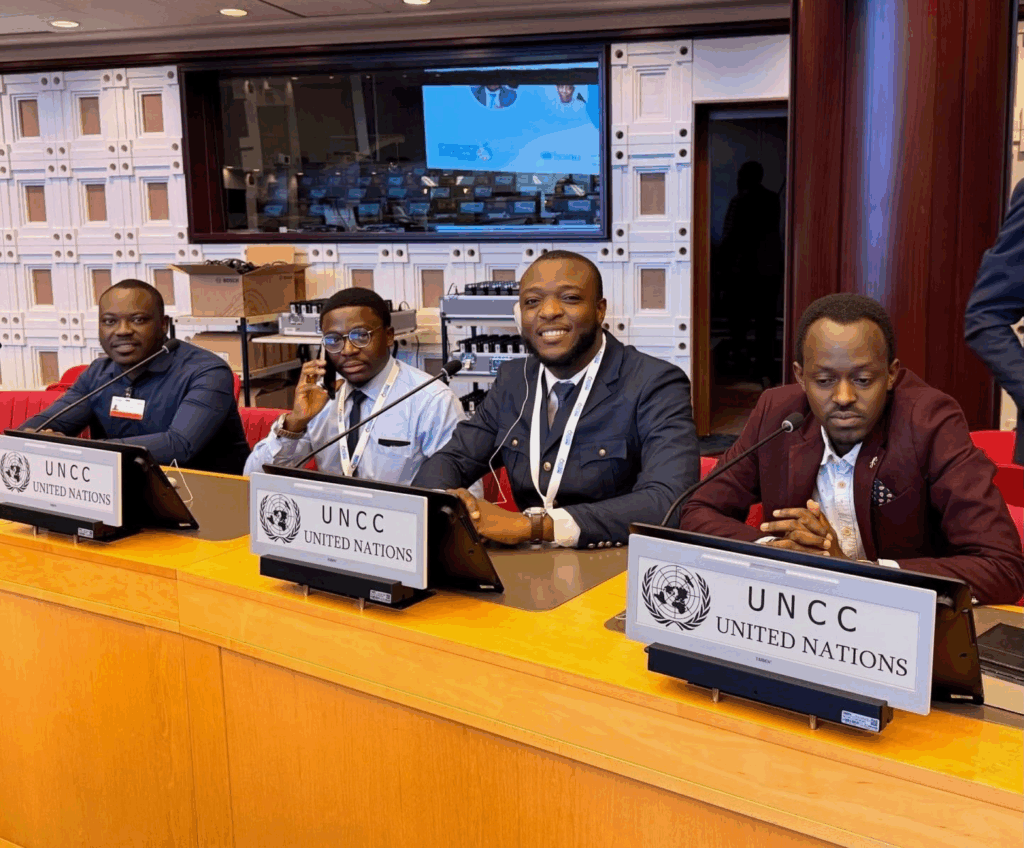
This year’s International Youth Day theme, “Local Youth Actions for the SDGs and Beyond”, speaks directly to the heart of my journey as a young entrepreneur in Ghana’s health, agricultural and innovation space. For me, it is both a celebration of what youth are already doing to transform our communities and a call to action for governments, development partners, and the private sector to truly invest in our ideas and capacity.
The theme is a reminder that the solutions to our most urgent challenges are often already in our communities, waiting to be unlocked. For me, that solution came from an unlikely source — discarded banana and plantain waste. Kodu Technology, the youth-led Ghanaian startup I co-founded, is reimagining agricultural waste not as useless residue, but as a resource with the power to transform lives. The idea came when my team and I met a young girl who stayed home during her menstrual period because she could not afford sanitary pads.
Her story was far from unique — in many rural communities, period poverty forces girls to miss school, and this undermines their dignity and long-term opportunities. That encounter was the spark that led my team and me to develop Kodu Pads – an affordable, eco-friendly sanitary pad made from processed banana and plantain fibres that has been approved by the Ghana Standards Board and Food and Drugs Authority.
Kodu Technology’s work touches lives while advancing multiple Sustainable Development Goals (SDGs). We are advancing SDG 3 on good health and well-being by ensuring that women and girls, particularly those in underserved communities, have access to safe, hygienic, and affordable menstrual products. Making menstrual pads affordable and accessible helps keep girls in school during their periods, dismantles harmful stigma, and opens doors to equal opportunities in education and beyond. I
In line with SDG 12 on responsible consumption and production, we transform agricultural waste into biodegradable sanitary pads, reducing plastic pollution, championing sustainable production practices, and strengthening the circular economy. In line with SDG 13 on climate action, we help protect the environment by eliminating the harmful practice of burning agricultural waste and replacing plastic-heavy pads with biodegradable alternatives, cutting both waste and emissions.

Today, Kodu Technology works with nearly 2,000 farmers, building a value chain that links climate action, women’s empowerment, and economic opportunity. Farmers who once burned or discarded banana and plantain stems now sell them to us, earning income that helps pay for school fees and household needs. Our growth has been fueled by strategic support from AGRA, whose $50,000 catalytic grant — awarded when we won the 2024 GoGettaz Agripreneur Prize Competition — enabled us to double production capacity. That means more girls gain access to safe menstrual products, and more farmers benefit from a reliable market for their waste.
Last month, with AGRA’s backing, I represented Kodu Technology at the UN Food Systems Summit +4 Stocktake (UNFSS+4) in Addis Ababa, Ethiopia, as part of a global dialogue on transforming food systems for climate resilience and equity. At the Summit, I saw firsthand how young leaders from across the world are tackling some of the most pressing challenges in our food systems — from climate change and biodiversity loss to food waste and gender inequality.
In my remarks, I shared how we convert agro-waste into eco-friendly sanitary pads and how this innovation is improving girls’ school attendance, rural women’s employment, and waste reduction. Engaging other young entrepreneurs was energising. Their bold ideas, shared challenges, and local innovations reinforced that sustainable development is a collective effort. The experience deepened our commitment to scale Kodu’s impact, not just in Ghana, but across the African continent. Youth like my co-founders and I at Kodu Technology are already piloting solutions that work, but we need stronger partnerships, enabling policies, and equitable financing to scale them.
As we mark International Youth Day 2025, I call on all stakeholders, including governments to international partners, to invest in local youth actions not as a side project, but as a central pillar of sustainable development, to help accelerate the creation of a transformative future for all. The future of Africa is not being written in boardrooms alone; it is also being written in rural workshops, community farms, agri-tech hubs, and in the determination of young innovators who refuse to see challenges as the end of the story.
With the right support, Africa’s youth can lead the way in building resilient, inclusive, and climate-smart food systems. And as my experience at UNFSS+4 reaffirmed, when youth lead, communities thrive, and the SDGs move from paper to reality. Happy International Youth Day to all young people across the African continent and worldwide.
- President Commissions 36.5 Million Dollars Hospital In The Tain District
- You Will Not Go Free For Killing An Hard Working MP – Akufo-Addo To MP’s Killer
- I Will Lead You To Victory – Ato Forson Assures NDC Supporters
Visit Our Social Media for More




